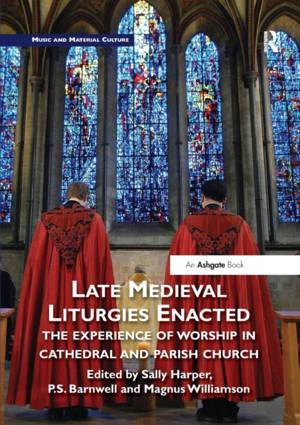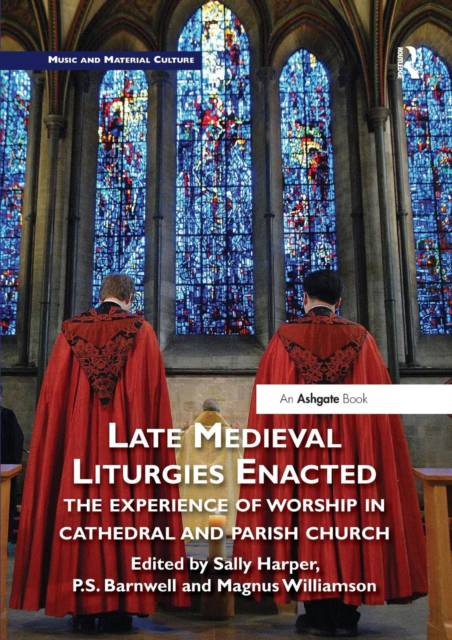
- Retrait gratuit dans votre magasin Club
- 7.000.000 titres dans notre catalogue
- Payer en toute sécurité
- Toujours un magasin près de chez vous
- Retrait gratuit dans votre magasin Club
- 7.000.0000 titres dans notre catalogue
- Payer en toute sécurité
- Toujours un magasin près de chez vous
Late Medieval Liturgies Enacted
The Experience of Worship in Cathedral and Parish Church
83,95 €
+ 167 points
Description
This book critically explores ways in which our understanding of late medieval liturgy can be enhanced through present-day enactment. It is a direct outcome of a practice-led research project, led by Professor John Harper and undertaken at Bangor University between 2010 and 2013 in partnership with Salisbury Cathedral and St Fagans National History Museum, near Cardiff. The book seeks to address the complex of ritual, devotional, musical, physical and architectural elements that constitute medieval Latin liturgy, whose interaction can be so difficult to recover other than through practice. In contrast with previous studies of reconstructed liturgies, enactment was not the exclusive end-goal of the project; rather it has created a new set of data for interpretation and further enquiry. Though based on a foundation of historical, musicological, textual, architectural and archaeological research, new methods of investigation and interpretation are explored, tested and validated throughout. There is emphasis on practice-led investigation and making; the need for imagination and creativity; and the fact that enactment participants can only be of the present day. Discussion of the processes of preparation, analysis and interpretation of the enactments is complemented by contextual studies, with particular emphasis on the provision of music. A distinctive feature of the work is that it seeks to understand the experiences of different groups within the medieval church - the clergy, their assistants, the singers, and the laity - as they participated in different kinds of rituals in both a large cathedral and a small parish church. Some of the conclusions challenge interpretations of these experiences, which have been current since the Reformation. In addition, some consideration is given to the implications of understanding past liturgy for present-day worship.
Spécifications
Parties prenantes
- Editeur:
Contenu
- Nombre de pages :
- 392
- Langue:
- Anglais
- Collection :
Caractéristiques
- EAN:
- 9780367202415
- Date de parution :
- 07-03-19
- Format:
- Livre broché
- Format numérique:
- Trade paperback (VS)
- Dimensions :
- 174 mm x 246 mm
- Poids :
- 644 g

Les avis
Nous publions uniquement les avis qui respectent les conditions requises. Consultez nos conditions pour les avis.





